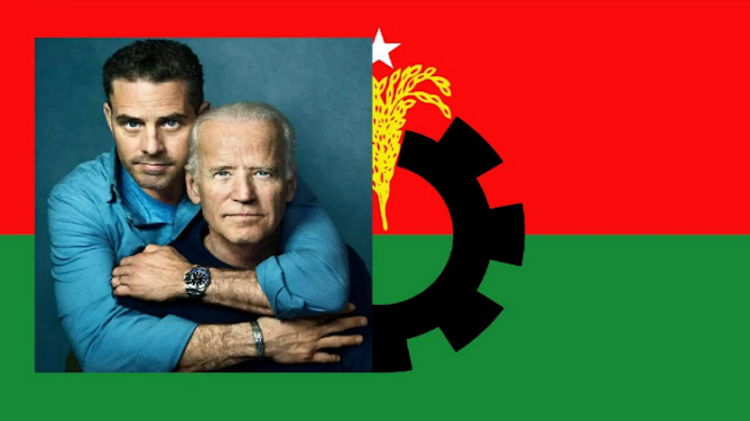By Muzaffar Ahmad Noori Bajwa*
NEW DELHI, 1 June 2023 (IDN) — In an unsettling turn of events, recent revelations have brought to light the involvement of Hunter Biden, son of US President Joe Biden, and Nobel Peace Laureate Professor Mohammad Yunus in actions that have raised profound concerns over the delicate fabric of US-Bangladesh relations.
Reports suggest that Hunter Biden, in association with the Bangladesh Nationalist Party (BNP) and Jamaat-e-Islami (JeI), has purportedly engaged in activities aimed at undermining the democratic process in Bangladesh.
Furthermore, Professor Yunus is alleged to have played a role in lobbying against the government of Bangladesh. The implications of these allegations extend beyond the internal affairs of Bangladesh, casting a shadow over the very foundations of diplomatic engagement and the principles of sovereignty and self-governance.
Hunter Biden’s alleged involvement in activities detrimental to Bangladesh have sparked deep concern and apprehension. Reports indicate his association with the Bangladesh Nationalist Party (BNP) and Jamaat-e-Islami (JeI), raising serious doubts about the motivations behind the United States’ visa restrictions and their potential consequences on US-Bangladesh relations.
The controversial lobbying arrangement
Emerging information suggests that Hunter Biden has reportedly engaged in a highly controversial lobbying arrangement facilitated by the firm Blue Star Strategies. Within this role, he is said to have undertaken various objectives, including obstructing the ruling party’s ability to conduct free and fair elections, exerting pressure on Prime Minister Sheikh Hasina, and influencing US officials to advocate for direct supervision of future elections in Bangladesh. If substantiated, these allegations carry significant implications for the democratic process and stability of Bangladesh.
Sources privy to undisclosed information have indicated that not only the United States but also several European countries, including the UK and Germany, may be contemplating similar actions. Such developments raise grave concerns as foreign interference in a nation’s internal affairs poses a direct threat to the principles of self-governance and sovereignty. The potential coordination of efforts across borders underscores the need for heightened transparency, accountability, and international cooperation.
Hunter Biden’s alleged actions, aligned with the interests of the BNP and JeI, strike at the heart of Bangladesh’s democracy. By interfering with the electoral process and seeking to undermine the ruling party, these actions not only jeopardize the progress made by the Bangladeshi people but also pose a significant threat to the country’s stability and sovereign decision-making. The involvement of multiple nations amplifies these concerns, emphasizing the urgent need for a thorough investigation to ascertain the facts surrounding these allegations.
Preserving strong US-Bangladesh relations
Preservation of the robust and mutually beneficial relationship between the United States and Bangladesh necessitates a commitment to shared democratic values, human rights, and mutual respect. Transparent and evidence-based discussions must shape the actions taken by both sides, ensuring that the principles underpinning this relationship remain steadfast.
The potential involvement of other nations, including the UK and Germany, adds a significant layer of complexity to the issue at hand. It is vital to address these concerns through transparent investigations, diplomatic dialogue, and a steadfast commitment to upholding democratic values.
By doing so, the United States, along with the international community, can work towards preserving mutual interests, promoting positive bilateral relations, and safeguarding the integrity of democratic processes and the sovereignty of nations.
*Muzaffar Ahmad Noori Bajwa is Editor-in-Chief of The Eastern Herald newspaper. [IDN-InDepthNews]
Image source: Blitz Weekly
IDN is the flagship agency of the Non-profit International Press Syndicate.
Visit us on Facebook and Twitter.
We believe in the free flow of information. Republish our articles for free, online or in print, under Creative Commons Attribution 4.0 International, except for articles that are republished with permission.

